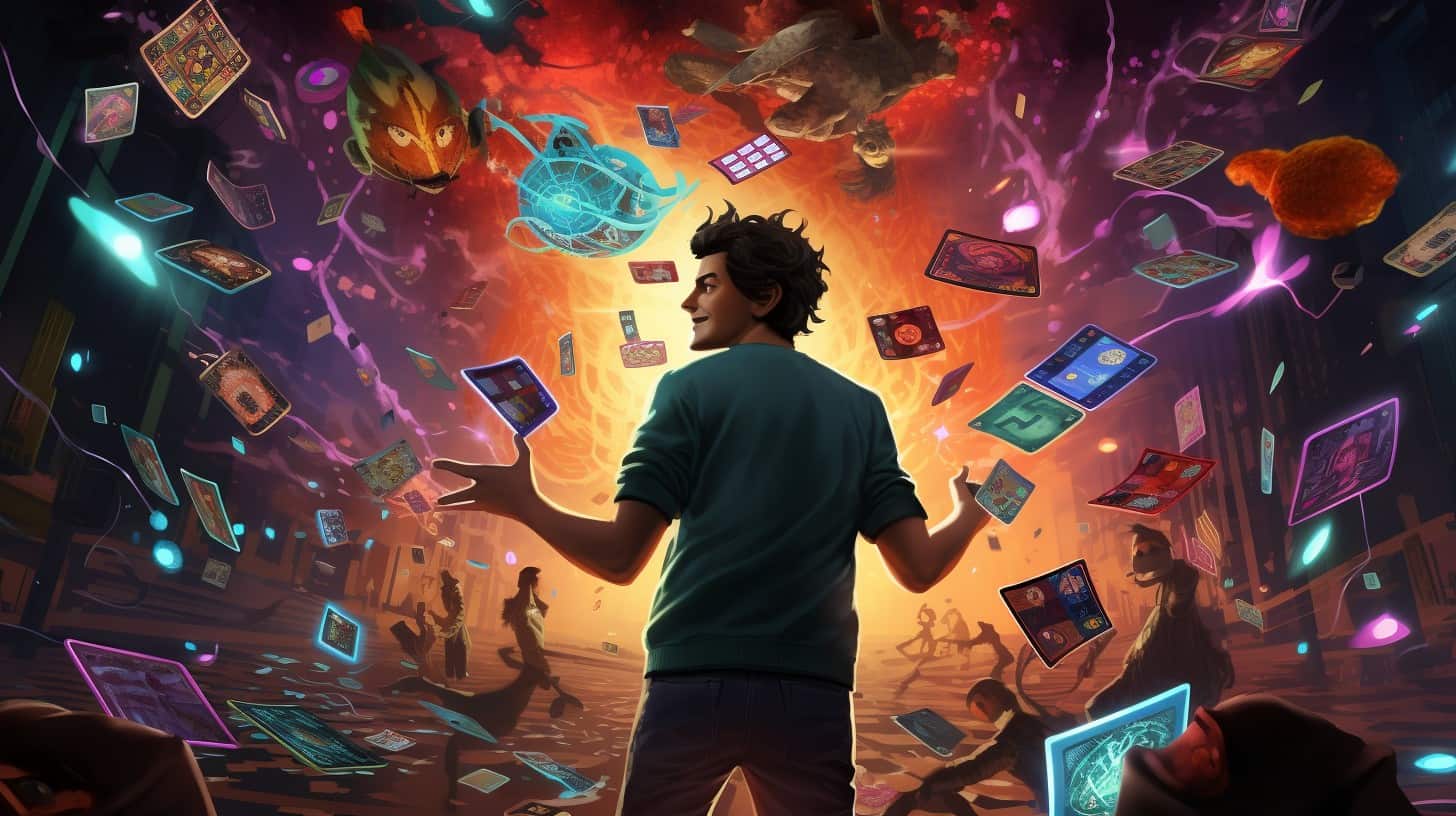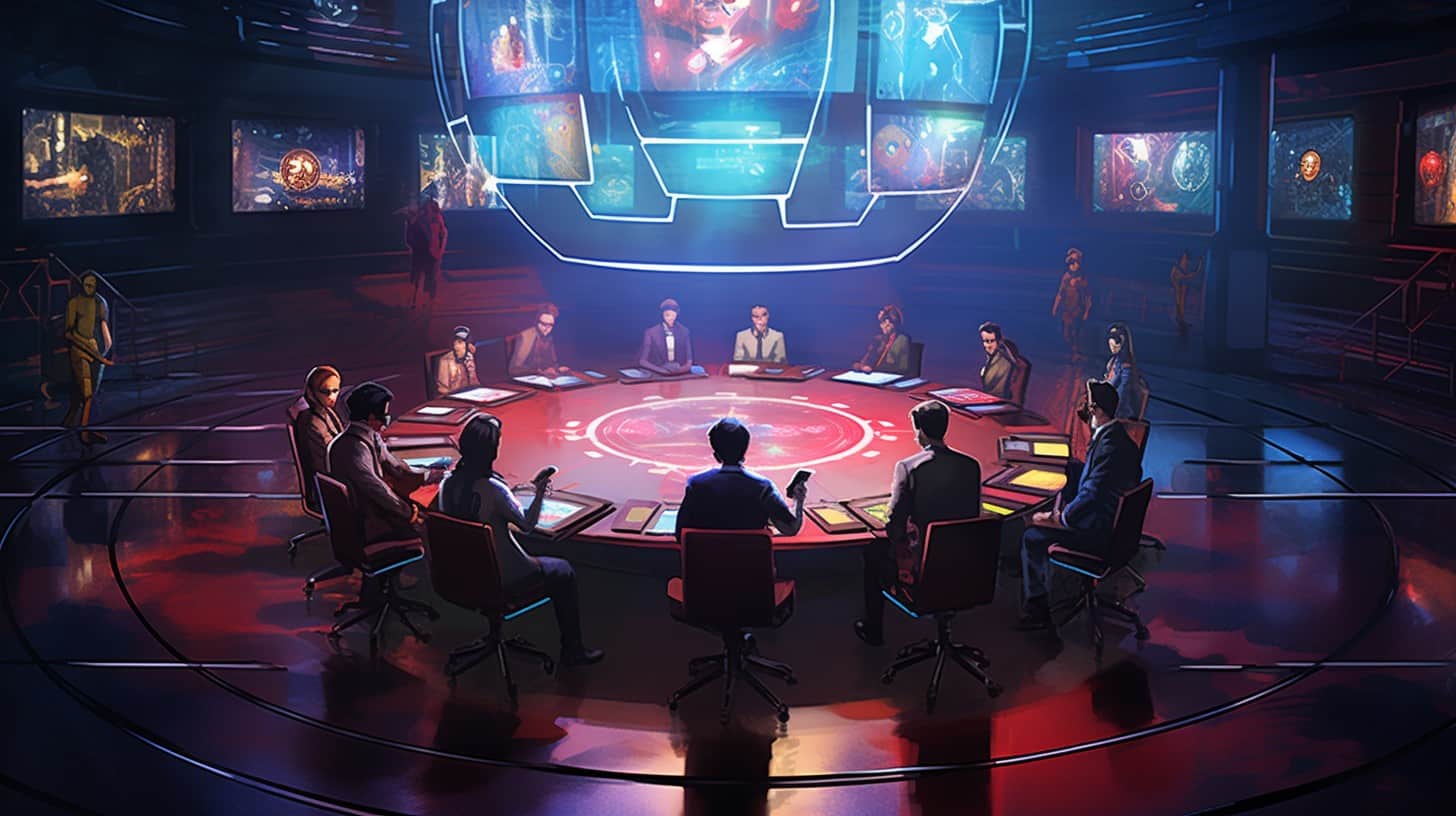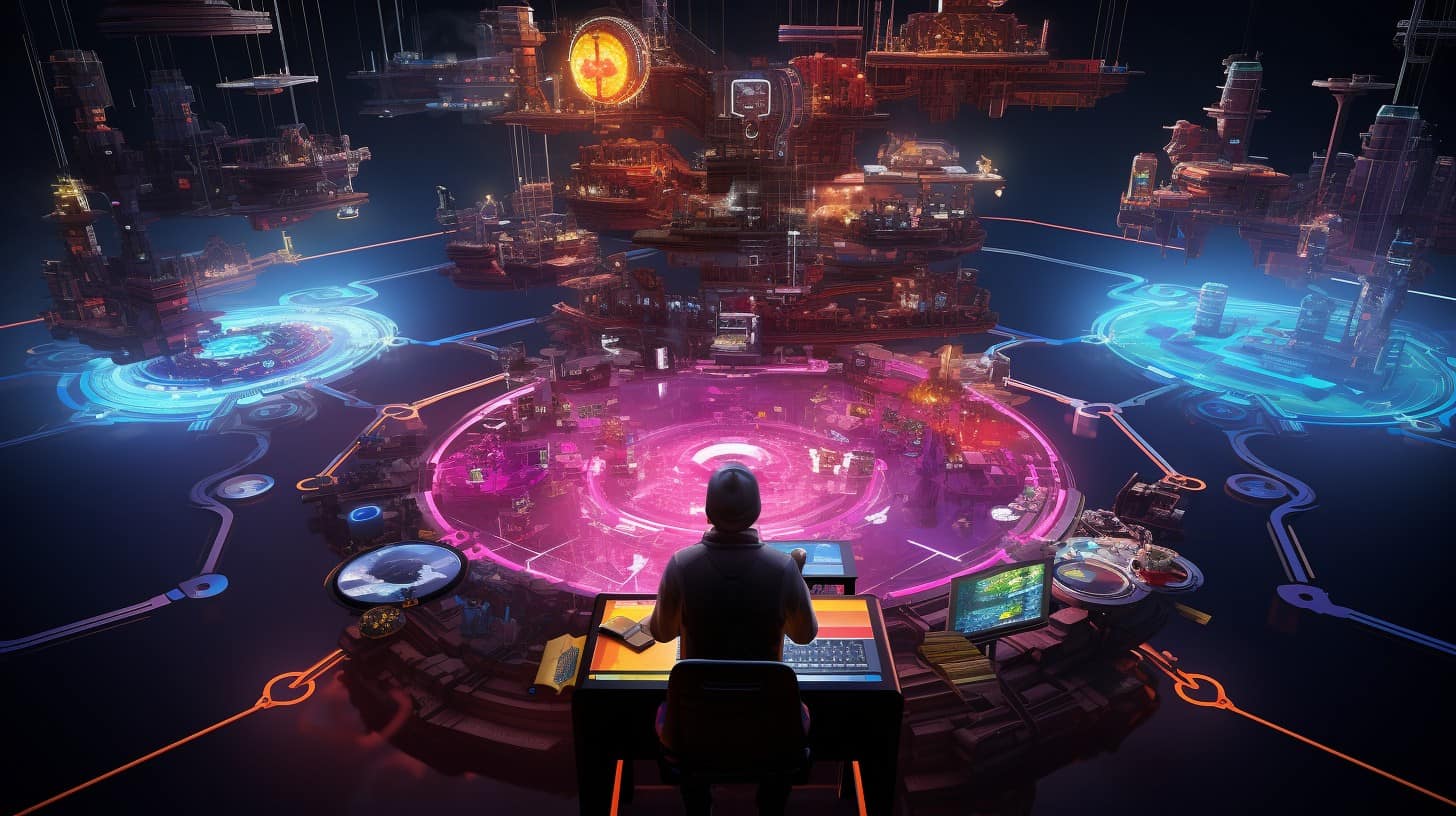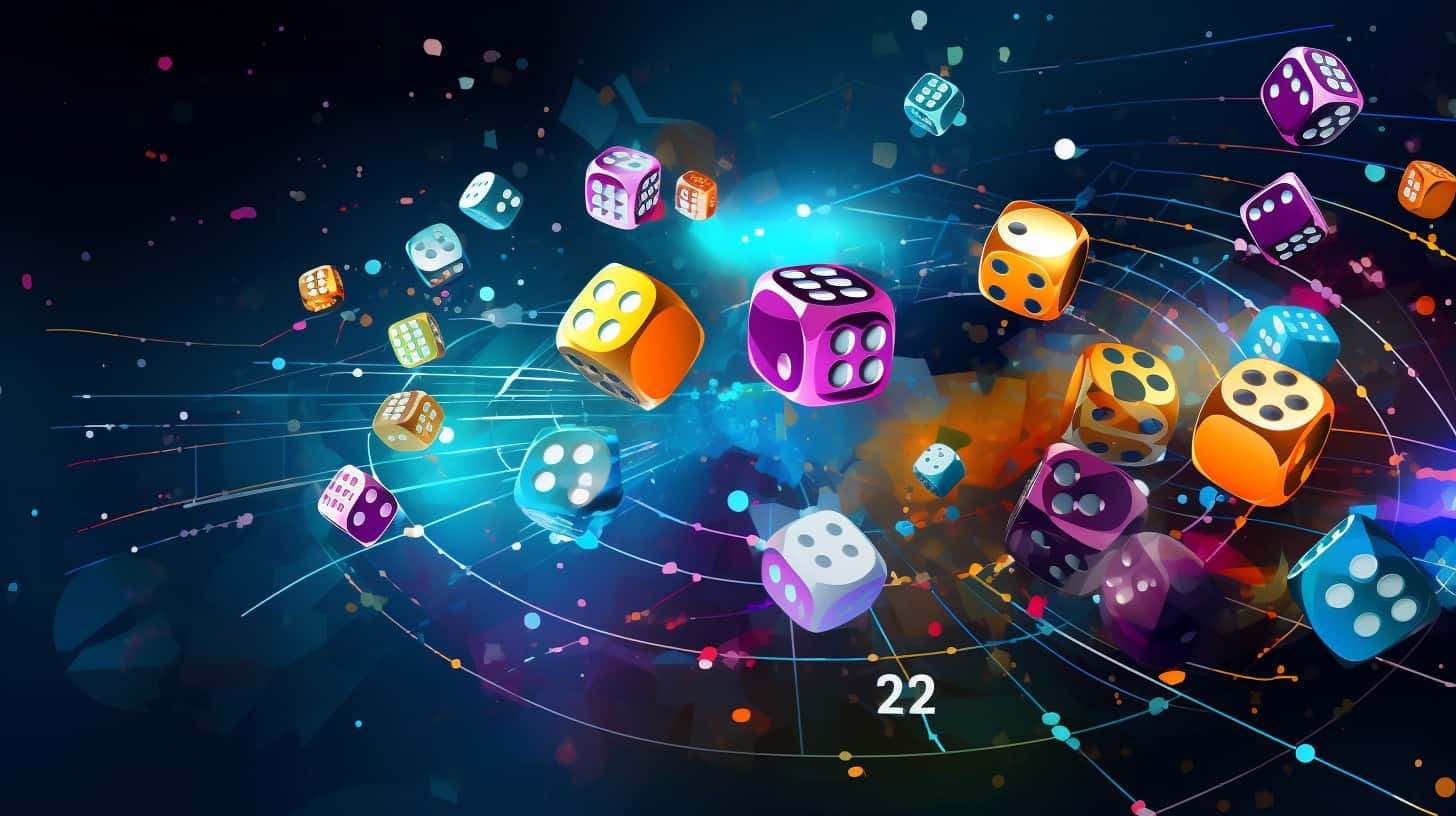Have you ever had that heart-pounding sensation where the future of your beloved game character rests on a single dice roll? I totally get it—that electrifying mix of hope and anxiety, not knowing if you’ll soar to victory or plummet into defeat.
As someone who appreciates the nuts and bolts of gaming, I couldn’t help but delve into the role of randomness in these critical moments. It turns out this unpredictability is driven by something known as RNG – Random Number Generators – crucial tools in shaping these nail-biting experiences.
So let’s gear up and explore what RNG really means in the world of gaming; it’s a journey filled with fascinating twists that promise to deepen your appreciation for every roll of those virtual dice.
Key Takeaways
RNG means Random Number Generators, and they are like the game’s way of rolling dice to bring surprise and chance into games.
There are two types: True RNG uses physical processes for random numbers; Pseudo-RNG uses math formulas and is more common in games.
RNG affects many parts of gaming, like what items you get, how worlds are made, and even how players fight in the game.
The right amount of randomness can make a game fun by keeping it fresh, but too much can feel unfair if luck beats skill.
Games that use RNG well include Hearthstone for card draws, Minecraft for world-building, and Pokémon for catching different creatures.
Table of Contents
Understanding RNG: The Basics

Diving into the world of RNG, I’ll break down what these mysterious three letters stand for and why they’re a cornerstone in game design. We’re talking about the invisible dice roll that can make or break your in-game success; it’s time to unravel the nuts and bolts of Random Number Generators.
Random number generation is a process by which, often by means of a random number generator, a sequence of numbers or symbols that cannot be reasonably predicted better than by random chance is generated.
https://en.wikipedia.org/wiki/Random_number_generation
Definition of RNG
RNG stands for Random Number Generators, and it’s like tossing a coin in your favorite video games. It brings in surprise and chance to make things exciting. Think of it as the game’s way of rolling dice behind the scenes to decide what loot drops you get or what kind of monsters jump out at you.
You know that thrill when something totally unexpected happens in a game? That’s RNG doing its magic. Game developers use code that works with random numbers to craft those unplanned moments, whether it’s finding a rare treasure chest or bumping into King Boo when you least expect it.
It makes every playthrough unique, keeping us gamers on our toes!
True RNG vs. Pseudo-RNG
Understanding the intricacies of Random Number Generators (RNG) is like delving into the secret sauce of gaming randomness. We often hear about RNG in the context of gaming, but what exactly are we talking about? Let’s break down the two primary types: True RNG and Pseudo-RNG, and see how they stack up against each other in the gaming world.
| Aspect | True RNG | Pseudo-RNG |
|---|---|---|
| Definition | Utilizes physical processes to generate random numbers (e.g., atmospheric noise). | Employs mathematical algorithms to produce sequences of numbers that only simulate randomness. |
| Predictability | Considered to be unpredictable and more secure. | Given the starting point, the sequence is predictable, thus less secure. |
| Common Use | Essential for applications like cryptography. | Widely used in computer programs and video games. |
| Efficiency | Can be slower due to reliance on physical processes. | More efficient, making it suitable for real-time calculations in games. |
| Implementation | Complex to implement in everyday gaming setups. | Easier to program and reproduce across different gaming platforms. |
Through this concise comparison, we gamers can appreciate the nuances of RNG in our gaming experiences. True RNG provides an unpredictable edge, making every in-game event a surprise. Conversely, Pseudo-RNG, with its algorithmic roots, offers a practical approach to creating a semblance of randomness that keeps us engaged, without compromising on performance. Each type has a pivotal role in shaping the virtual worlds we love to explore, loot, and conquer.
The Role of RNG in Video Games

The whims of RNG can turn the tide of a gaming adventure, breathing life into virtual worlds with unforeseeable twists and turns. It’s this mechanic that sprinkles serendipity across our digital landscapes, from treasure hunts to terrain formation, shaping every player’s unique journey.
Loot systems and item drops
I know the thrill of finding cool loot in video games. It’s like a surprise gift that keeps you playing for hours.
- Loot systems are a big deal in games. They use RNG, or random number generator, to decide what items you get.
- This randomness means every play is different. You might get something awesome or just okay stuff.
- Games like Borderlands have tons of loot. Each item drop adds excitement and keeps the game fresh.
- Sometimes, you might find rare gear that makes your character super strong. This can change how you play and help you beat tough parts of the game.
- Good game makers think hard about their loot systems. They want to make sure the game stays fun and fair for everyone.
- If a game uses too much RNG, it can feel unfair. But just the right amount can make a game more interesting and give players reasons to keep coming back.
- Items can drop from monsters, treasure chests, or as rewards for completing quests. Each has its own chance, decided by RNG.
- Special events or bosses often drop better loot. So, beating them feels extra rewarding because of the hard work it took.
Procedural generation and game environments
Moving past the thrill of finding random loot, let’s talk about procedural generation. This cool tech means games don’t have to be made by hand, one piece at a time. Instead, they use smart code to build worlds and levels on the fly.
Think of it like planting seeds in a garden—each seed (or “seed value“) grows into something unique each time you play.
Games with procedurally generated environments keep things exciting because you never know what’s around the corner. Imagine playing Minecraft—you smash some rocks here, dig dirt there, and bam! You find a new cave every time.
That’s procedural generation creating an awesome world for your adventures without needing someone to design every hill or river—which saves game makers tons of work and gives you a fresh experience each visit!
Impact on gameplay and player experience
Just like in real life, surprises can make games exciting or frustrating. RNG throws in these surprises by deciding what you find in loot boxes or when you’ll land that massive critical hit.
This unpredictability keeps me on my toes and often means each game feels different. Even the same game can change a lot depending on how RNG rolls.
But it’s not all fun and games, as random chance can also lead to some serious groans. Imagine fighting a tough boss for hours only to get weak gear, all because of bad luck with RNG.
That kind of randomness stings and can turn an awesome gaming night sour. It’s important for game makers to use RNG wisely so it adds thrill without making players feel cheated by pure chance.
RNG in Competitive Gaming

RNG can make or break the competitive gaming landscape, introducing a layer of unpredictability that demands adaptability and strategy from players. It’s fascinating to see how top-tier competitors in titles like Hearthstone and Dota 2 grapple with RNG elements, often turning what seems like sheer chance into a calculated advantage.
How RNG affects strategy in games like Hearthstone and Dota 2
In Hearthstone, I never know what card I’ll draw next. This randomness means I have to think on my feet and change my game plan as new cards come into play. Sometimes, a lucky draw wins the game, while other times, it’s not what I need at all.
It keeps every match fresh and demands that players adjust their strategies in real-time.
Dota 2 throws even more curveballs with RNG, affecting hero actions like hitting or missing an attack. When gold from last hits or item drops varies because of RNG, my approach needs to be flexible.
As Roshan’s respawn timing is random too, teams must always be ready for a fight or to grab an advantage when they can. Adapting quickly to these random elements separates good players from great ones in Dota 2—it’s about making smart moves despite uncertainty.
RNG manipulation and speedrunning
I’m all about cutting down my times in speedruns, and RNG manipulation is a total game-changer. It’s like I have some control over the luck part of the game. Speedrunners use this trick to make random things happen just right, so they can blast through games super fast.
They need to know the game inside out and practice a lot to pull this off, but when they do, it’s like watching magic.
This skill is huge for runners because it helps them get the same good results every time. Picture trying to catch that perfect Pokémon or hit that rare item drop – RNG manipulation makes these things way more likely! And sure enough, after lots of tries and learning how each game ticks, I’ve managed to shave off precious seconds from my runs too.
It feels awesome when hard work pays off with a new personal best! Now, let’s dive into why some players argue about whether RNG is actually good for games or not.
The Debate Over RNG

The RNG mechanic continues to stir a hearty debate among gamers, with some praising its ability to inject freshness and replayability into games, while others decry it as a source of frustration that can undermine skill.
This dichotomy begs the question: does RNG truly elevate the gaming experience, or does it compromise the meritocracy of skill-based victory? Let’s delve deeper into this contentious aspect of modern gaming and uncover both sides of the coin.
Arguments for RNG enhancing game fun and diversity
RNG keeps games exciting because you never know what’s going to happen next. Imagine playing a role-playing game and finding rare loot only randomly; this surprise makes gaming thrilling.
Each time I play, the randomness means my experience is unique, which keeps me coming back for more. It feels like opening a mystery box every session!
Games get more diverse with RNG too. For example, in Pokémon games, running into different creatures each time adds so much variety to the adventure. This randomness means no two players have the exact same journey or strategy.
RNG brings out new challenges that test our skills and adaptability as gamers—it’s part of what makes us love gaming!
Criticisms of RNG leading to unfairness and frustration
Sure, RNG might add some spice to gaming by mixing things up, but not everyone is happy with this. I’ve heard plenty of gamers say that RNG can mess with fairness and even make playing games feel annoying.
It’s like when you’re doing your best and still lose because someone else just got lucky. That can really burn.
Some folks think that RNG is a big problem because it means luck can be more important than skill. Imagine working hard to get good at a game only to watch someone win because they hit the jackpot on a random loot drop or an enemy spawn.
That sort of thing doesn’t seem right when we want games to be about who’s got the best moves or strategies, right? It makes you wonder why you’re putting in all the effort if chance is going to wipe out your hard work anyway.
Balancing RNG in Game Design

As a passionate gamer, I’ve seen firsthand how a well-tuned Random Number Generator can be the secret sauce to keeping those gameplay moments fresh and challenging. Striking that perfect balance of unpredictability without crossing into the realm of frustration is key—giving each player a fair shot at victory while still keeping them on their toes.
Whether I’m diving into Diablo’s next dungeon or scouring for gear in the latest JRPG, it’s clear developers have their work cut out for them when calibrating this digital dice roll.
And, as someone who’s always on the lookout for sweep coins casinos, understanding RNG systems becomes even more crucial; they’re not just about thrill but fairness too.
Finding the right amount of RNG for fairness and challenge
Making sure a game is fair and still tough can be hard. It’s like trying to find the sweet spot on a seesaw so everyone has fun without tipping over. Too much RNG and some players might feel cheated if luck isn’t on their side.
Not enough RNG and the game could become boring because everything is too predictable.
Good game creators think about how random things should be. They want every player to stand a chance while keeping the excitement of surprise alive. We see this in action when games drop cool loot or change up the world each time you play.
This mix keeps us coming back for more because we never know what awesome thing will happen next!
Examples of well-balanced RNG in popular games
Getting the balance right with RNG can make or break a game’s fun factor. It’s that sweet spot where luck meets skill, and here are some games that hit the mark perfectly.
- Hearthstone: This card game is all about strategy, but RNG adds an exciting twist. Each card drawn is random, keeping players on their toes. Though luck is a factor, clever deck-building and smart plays often lead players to victory.
- The Legend of Zelda: Breath of the Wild: Here, RNG determines what weapons and items you find. This means no two playthroughs are alike. It encourages exploration and rewards adventurous gamers without making others feel left behind.
- Minecraft: The worlds in Minecraft are randomly generated, offering unlimited landscapes to explore and resources to discover. The randomness ensures each gamer gets a unique experience while maintaining equal chances for everyone.
- Pokémon Games: When you’re out catching Pokémon, RNG decides which creatures you’ll encounter and how tough they are to catch. It keeps the hunt thrilling yet fair since all trainers get these random encounters.
- Diablo Series: Loot drops in these action-RPGs are wildly diverse thanks to RNG. Players never know what item they’ll get next, which creates a sense of wonder and keeps them coming back for more loot.
RNG Is Here To Stay
In the end, RNG adds a dash of surprise to our favorite games. It keeps things fresh and exciting every time we play. But remember, it’s not just about luck; strategy still matters in how we use those random chances.
Love them or hate them, random number generators are here to stay in the gaming world. They sure keep us on our toes and make each game unique!
FAQs About RNG In Games
What is RNG in video games?
RNG means Random Number Generator, and it’s a tool that makes random numbers to decide what happens in games.
How does RNG affect game strategy?
Because RNG creates surprises, players have to think on their feet and adjust their game plan as they play.
Can you control the outcome of RNG in games?
No, you can’t control or predict what the RNG will do; it’s all chance!
Why do some gamers not like RNG?
Some “sweaty” gamers who are very serious about gaming feel that RNG adds too much luck and takes away from skill in video games.
Is there more than one type of RNG used in gaming?
Yes! There’s “pseudorandom number generation” for computer games and “hardware random number generator,” which is built into some game machines.
Does using RNG mean a game is cheating players?
Not at all! Games use different strategies like balancing chance (RNG) with player skill so everyone can enjoy playing without cheating.



